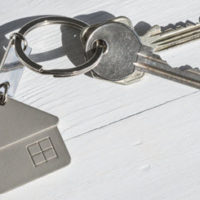Implied Warranty of Habitability, Why Does it Matter?

The implied warranty of habitability is an essential issue for landlords to understand in order to avoid litigation. At the office of Edward J. Jennings, P.A. we are experienced in real estate law and can help you understand your responsibility as a landlord to avoid litigation.
What is the implied warranty of habitability?
The implied warranty of habitability is an element of a lease. The warranty states that everyone is entitled to a suitable place to live, regardless of the rent that they are being charged. The definition of suitable varies based on jurisdiction. In Florida, a landlord must keep their rental properties compliant with the building, housing, and health codes. According to the Florida statutes, if there are no applicable building codes, the landlord is responsible for ensuring that the windows, roof, doors, floors, walls, stairs and foundations are all in good repair. Landlords are required to provide running water, heat must be provided in the winter. Air conditioning, however, is not required, because it is not necessary for a home to be habitable.
The standard for the implied warranty of habitability is that the building is safe for human beings. The expectations are put in place to protect tenants from disreputable landlords.
What happens if I am non-compliant?
When a landlord is not compliant with the implied warranty of habitability, the tenants have the right to move out. In order to notify the landlord properly of intent, the tenants need to provide written notice of intent to move out. Once that happens, landlords have seven days to correct the problem. If after seven days, the property is still not in compliance with the warranty of habitability, the tenant has the right to terminate the rental agreement. In this situation, the tenant is not responsible for any penalties that are associated with breaking a lease early. A tenant is no longer responsible for the rent of their unit upon vacating it due to uninhabitable.
Tenants have a right to withhold rent when living in an uninhabitable space. The tenant needs to notify the landlord in writing of a problem that makes the rental uninhabitable, upon receiving that notice, the landlord has at least twenty days to fix the problem. The tenant has the right to withhold rent until the problem is fixed and the rental property is brought up to the standards to be deemed habitable. When the unit is in compliance with building codes, the tenant is required to pay the landlord the withheld rent, without any late penalties added.
How do I prevent litigation?
There are some very simple steps that you can take to minimize your risk of a lawsuit. Prior to renting out a property for the first time, hire an inspector to go through the property and document any problems they find. Fixing problems that are found may be expensive upfront, it is worth it to protect yourself from legal action, and lost rent due to unsafe living conditions.
Another simple step that you can take as a landlord to prevent an implied warranty of habitability claim is to go through the apartment between each tenant. Take the time to make sure that everything is in working order. This allows you to be sure that the new lease starts out with everything up to your standard and prevents issues with tenants from the beginning.
Contact an Attorney for Help
If you are in the midst of an implied warranty of habitability lawsuit, the law office of Edward J. Jennings, P.A. is available to help. Our skilled Fort Lauderdale real estate attorneys are eager to assist you today.
Resource:
flsenate.gov/Laws/Statutes/2018/83.51
https://www.ejj-law.com/what-is-equity-skimming-and-how-to-identify-it/

